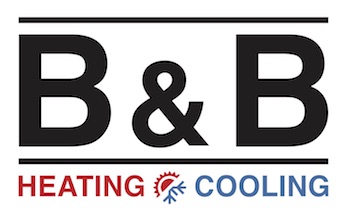Completing the search for your first home is exciting. You’re probably juggling a dozen things or more to ensure you’re making the right choice. We believe that understanding your future HVAC system is crucial. The property’s HVAC system represents a significant investment and potential source of long-term costs, which is why due diligence should be a top priority for first-time homebuyers.
In the following guide, we’ll share seven tips for discovering all there is to know about a home’s heating and cooling system. And if you want a deeper opinion from the experts, consider calling B & B Heating & Cooling. Our staff can weigh in on your options with industry insights that are second to none.
1. What Type of HVAC System Is It?
Start by determining what specific HVAC system the home includes. Furnaces tend to last longer than air conditioners, and relatively new types of HVAC equipment like heat pumps feature average life spans longer than ever. Getting the details on the make and specific model gives you a clear understanding of how much maintenance it will require.
2. How Old Is the Current HVAC System?
Another good idea is to find out how old the HVAC system is when you’re looking at a potential new home. On average, HVAC systems last about 10-12 years. Learning its approximate installation date helps you anticipate future maintenance needs or when it might break down. Older systems are more prone to problems, so fiscal planning for a replacement unit might be needed faster than expected.
3. Is the Warranty Still in Effect?
Check if the HVAC system is covered by a warranty. If it is, that’s great news because it can lighten the load for maintenance costs. HVAC warranties typically include parts and labor, but the details in each policy will vary. Review any terms you don’t recognize to ensure you understand your coverage and the likelihood of out-of-pocket costs.
4. Does the System Have a Documented Maintenance History?
Next, examine the maintenance history of the HVAC system, if such information is accessible. This kind of information can reveal if the system constantly broke down or how often a tune-up was scheduled. Inquire about key tasks such as changing the air filter, which can indicate it received regularly scheduled tune-ups.
5. What Are the Energy Efficiency Ratings?
Purchasing a home with a heating and cooling system with high energy efficiency isn’t just smart; it leads to smaller utility bills and a smaller environmental impact. Locate the seasonal energy efficiency ratio (SEER) ratings for air conditioning and the annual fuel utilization efficiency (AFUE) for furnaces. Higher SEER ratings mean better cooling across the entire season, while high AFUE ratings mean the fuel is efficiently converted into useable heat.
6. Did You See Any Problems After Completing an Informal Inspection?
Even without the know-how of an HVAC technician, it’s still a good idea to check out the HVAC system on your own. Keep an eye out for any concerning items that might have been overlooked. This can mean bizarre noises, spots with uneven heating or cooling and attempts to hide any serious damage.
7. Have You Sought Out Expert Advice?
If you’re still hesitant to make an offer because of the condition of the HVAC system, it’s never a bad idea to get an assessment and recommendation from certified HVAC professionals. They are skilled at identifying things you might miss, such as leaking coolant, damage to the wiring or flawed ductwork.
A Consultation with B & B Heating & Cooling Helps Take the Stress Out of Your Home-Buying Journey
Finding your first home is meant to be a joyful event, and B & B Heating & Cooling can ensure it stays that way. Connect with us at 314-668-8530. We can go over the details about how our HVAC services help make this process smoother, giving you what you need to step into your new home with confidence.
